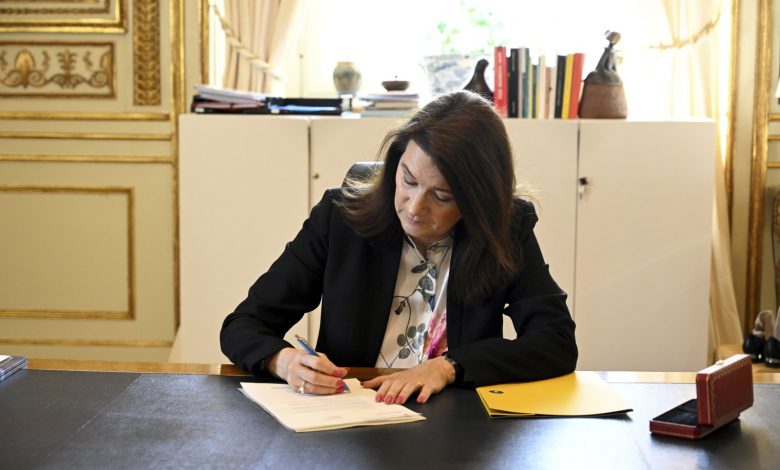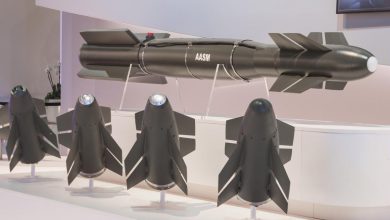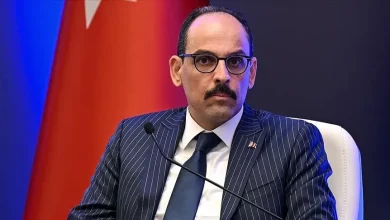Report: Sweden fails to cooperate with Turkey in fight against terror

Sweden opts to “protect” terrorists with its approach as it has either rejected or failed to respond to Turkey’s requests to extradite fugitive members of terror groups, Anadolu Agency (AA) has reported.
According to sources, Sweden refused the extradition and granted citizenship to Mehmet Sıraç Bilgin, Aysel Alhan, Aziz Turan, Ragıp Zarakolu and Halef Tak, who are all affiliated with the PKK terror group.
Swedish authorities also failed to respond to extradition requests for members of the Gülenist Terror Group (FETÖ), including Harun Tokak, a senior operative and the group’s so-called Israel representative, as well as Bülent Keneş, a former editor at FETÖ’s English-language mouthpiece Today’s Zaman.
Similarly, Stockholm was unresponsive when Turkey demanded the extradition of FETÖ members Levent Kenez and Yılmaz Ayten, who were granted asylum in Sweden after living in Afghanistan for years.
In its more than 40-year terror campaign against Turkey, the PKK – listed as a terrorist organization by Turkey, the United States, and European Union – has been responsible for the deaths of over 40,000 people, including women, children and infants. The YPG is PKK’s Syrian offshoot.
FETÖ and its U.S.-based leader Fetullah Gülen orchestrated the defeated coup of July 15, 2016 in Turkey, in which 251 people were killed and 2,734 injured.
FETÖ was also behind a long-running campaign to overthrow the state through the infiltration of Turkish institutions, particularly the military, police and judiciary.
The PKK terror group uses AT4 rockets, produced by Sweden, which has applied for NATO membership, in attacks on the Turkish military, AA also reported.
According to security sources, the rockets have been extensively used by the PKK in its numerous attacks on Turkish forces, both within and beyond the country’s borders.
Turkish forces recently seized AT4 missiles from a PKK hideout in northern Iraq.
Similarly, as many as 17 AT4 missiles were found by security forces in 2020 and 2021 in seven separate incidents from various locations in the southeastern Hakkari province.
In southeastern Şırnak province, five AT4 missiles were found by security forces on four different occasions between 2019 and 2021.
Meanwhile, in different parts of northern Iraq, including Hakurk, and Avashin-Basyan, 13 AT4 weapons were discovered between 2018 and 2021 in four different incidents.
The weapon system, which has a wide product family, is one of the most common light anti-tank weapons in the world. The effective range of this man-portable, single-shot weapon is 200-1,000 meters (660-3,300 feet).
It was designed to destroy or disable armored vehicles and fortifications.
Meanwhile, Sweden’s foreign minister on Friday hit out at “disinformation” about Sweden and the PKK, after Turkey accused the Nordic country of giving support to the militant group, complicating NATO’s enlargement.
“Due to the vastly spread #disinformation about (Sweden) and PKK, we would like to recall that the (Swedish) government of Olof Palme was first after (Turkey) to list PKK as a terrorist organization, already in 1984,” Foreign Minister Ann Linde said on Twitter.
“EU followed suit 2002… This position remains unchanged,” she said.
Turkey, a longstanding NATO member, has voiced objections to Finland and Sweden’s membership bids, criticizing the countries for tolerating and even supporting terror groups, including the PKK and its Syrian offshoot.
Over the last five years, both Helsinki and Stockholm have failed to agree to Ankara’s requests for the extradition of dozens of terrorists, including members of the PKK and FETÖ.
Senior representatives of Finland and Sweden are set to visit Ankara in the coming days to discuss their accession processes.





